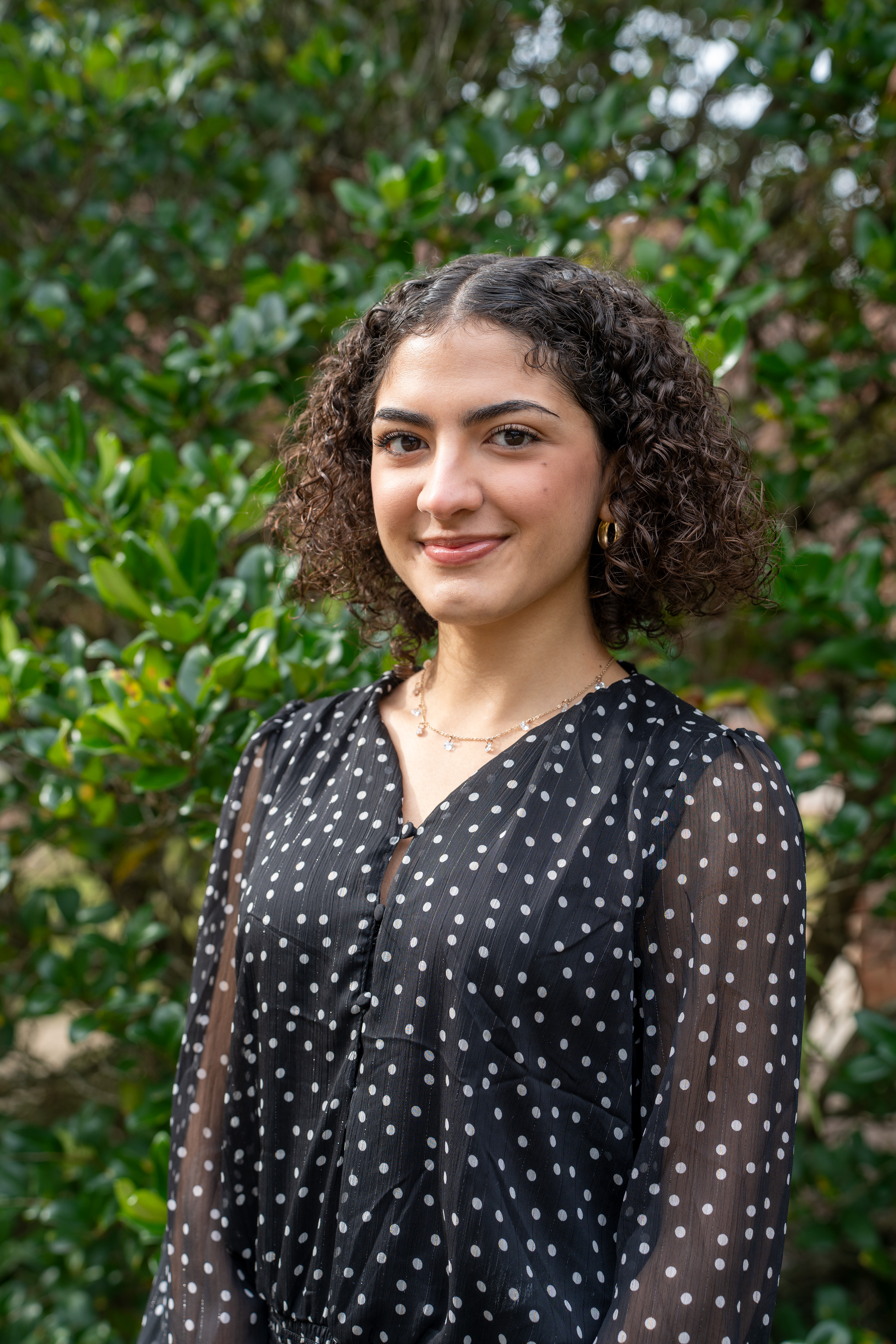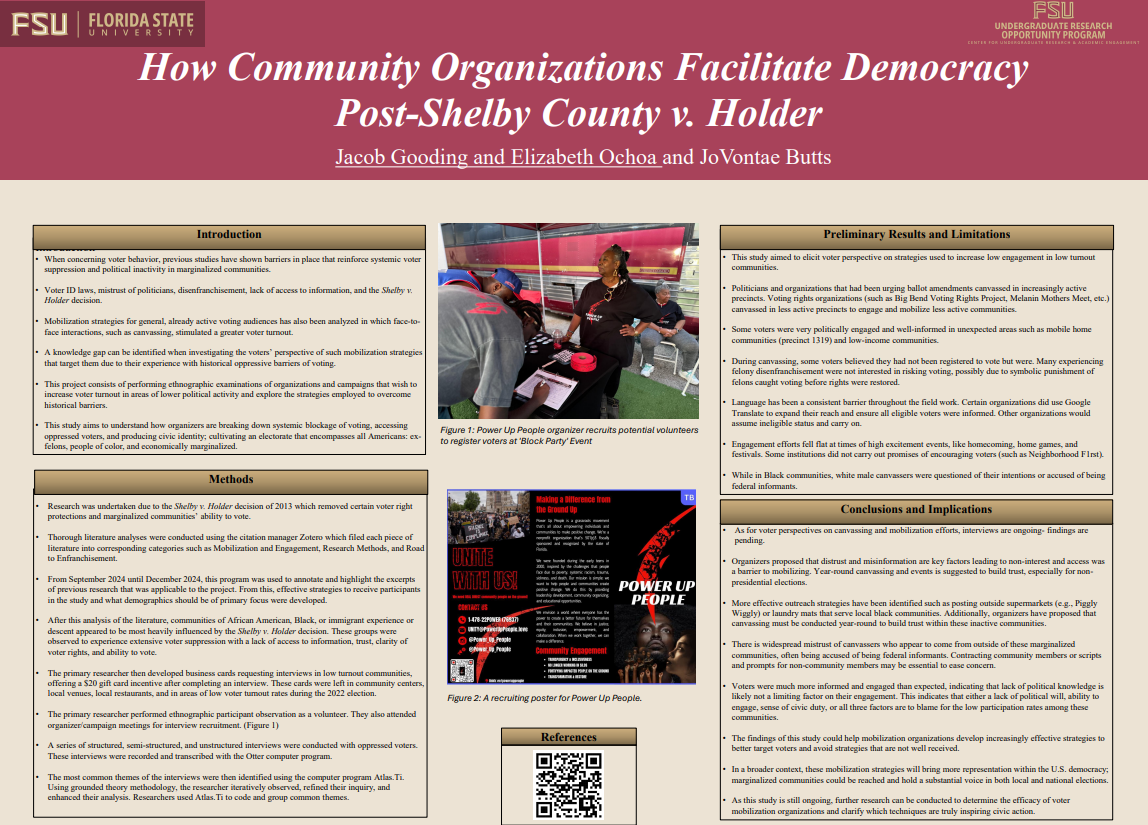Research Symposium
25th annual Undergraduate Research Symposium, April 1, 2025
Elizabeth Ochoa Poster Session 2: 10:45 am - 11:45 am/ Poster #71

BIO
I am a class of 2027 first-generation honors student from Fort Lauderdale, Florida, pursuing a dual degree in Political Science and Media Communication Studies. Post-graduation, I plan on applying for law school in hopes of being involved with either environmental or entertainment law. Politics and International Relations has been a relatively recent passion of mine, I always strive to expand my awareness of current events. This also took flight during this recent presidential election, it being the first one I was able to vote in. I wish to extend the importance of formulating a civic identity and duty to my generation, I feel that Generation Z would greatfully benefit by involving ourselves in democratic practices and knowledge. I also have a great interest in the media world, I thoroughly enjoy creating whether it be comedic scripts, social media graphics, or event ideas. This allowed me to achieve my placement as the communications chair of the FSU 2025 Homecoming Executive Council. In the future I dream to fulfill a career involving both the media and politics, unleashing a lasting impact on the world around me in the digital age we are living in.
How Community Organizations Facilitate Democracy Post-Shelby County v. Holder
Authors: Elizabeth Ochoa, JoVontae ButtsStudent Major: Political Science and Media Communication Studies
Mentor: JoVontae Butts
Mentor's Department: Sociology Mentor's College: College of Social Sciences and Public Policy Co-Presenters: Jacob Gooding
Abstract
Previous mobilization studies and strategies have shared bias towards currently active and reachable voters, creating a knowledge gap in how disengaged voters can be included in scholarly discourse. This study aims to investigate the strategies grassroots voter organizations employ to address voter suppression and grappling disengaged voters despite institutional barriers. As well as if and how the hurdles of political distrust, inaccessibility to information, and clarity of voter rights can be overcome. By analyzing these efforts, we can estimate how these strategies are impacting the attitudes of the voters they seek to engage. This may also inspire future insight into how democratic processes can become more inclusive and expansive over populations that have been historically oppressed after the Shelby County v. Holder decision. Significant literature review was conducted concerning past voter suppression and voter behavior among diverse populations, genders, and age groups. Ethnographic examination of voter organizations and campaigns in the Tallahassee Florida area during the 2024 Presidential election, alongside their efforts to mobilize oppressed voters, was employed using participant observation and semi-structured interviews. This data was thematically coded to organize and identify consistent trends. It has been gathered thus far that many disengaged voters have a consistent distrust for politicians and the political process, possess a lack of information, or were unaware about their eligibility to vote. Insights have given light to more local, marginalized community-centered areas that may be increasingly effective for engaging oppressed voters such as local supermarkets or laundry mats.
Keywords: voting rights mobilization

